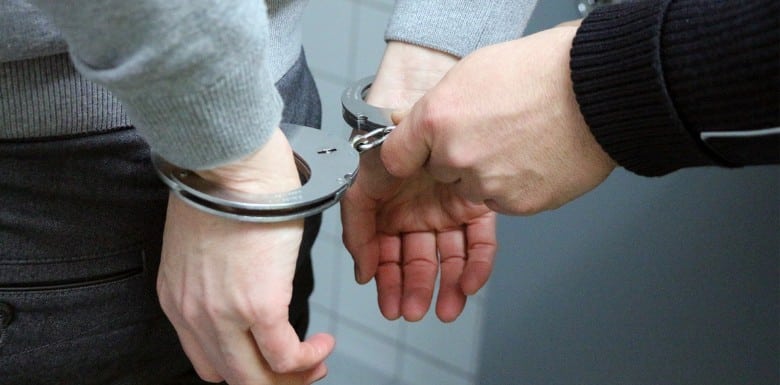Arrested in a Pittsburgh Drug Bust? Here’s What to Expect

In 2020, a federal grand jury indicted 26 people in a drug trafficking scheme in Western Pennsylvania. U.S. Attorney Scott Brady connected alleged members of the gang, ‘Shot Boyz’ to the scheme as well as a number of violent incidents in the Homewood and East Hills areas. The case was a part of a larger program by the Organized Crime Drug Enforcement Task Force. According to police, the bust would drastically cut back on the amount of heroin and fentanyl coming into Westmoreland County.
While large scale drug arrests are a necessity, they can lead to bystanders being unfairly implicated to a drug bust. This is commonly seen when people struggling with addiction are caught up without knowing the extent of what’s going on.
At Worgul, Sarna & Ness, Criminal Defense Attorneys, LLC, our accomplished Pittsburgh drug lawyers realizes how complicated these situations can be and are here to help. If you’ve been indicted, charged or questioned about a crime after a drug bust, call (412) 281-2146 24/7 for a free consultation.
How Do the Police Know Where to Do a Drug Bust?
The police use multiple tactics to identify and investigate suspected drug trafficking. Here are some of the most common ways:
- Informants: Confidential informants (often low-level dealers or users) may receive reduced charges in exchange for information on drug sales and locations.
- Undercover operations: Police officers can pose as buyers to infiltrate drug rings and make controlled purchases.
- Surveillance: Physical or electronic surveillance of suspects, their homes, or known drug locations can provide evidence of drug activity.
- Traffic stops: A routine traffic stop can lead to a search of the vehicle if the officer smells drugs or observes suspicious behavior.
- Anonymous tips: Tips from the community can also be a source of leads.
Drug charges also result from other ongoing investigations or a “cold hit,” when officers stumble upon drugs or a drug transaction while investigating another crime.
What Tactics Do Police Use During a Drug Bust?
If they have probable cause, police can obtain a warrant to search a residence or vehicle for drugs and related evidence. They can also typically seize drugs in plain view during a lawful stop.
If police don’t have a warrant, they may ask for permission to search you, your car, or your home. You can respectfully decline a warrantless search and invoke your right to remain silent to avoid self-incrimination.
How Are Penalties Determined After a Drug Raid?
Penalties for drug-related charges are determined according to a few key factors: the substance itself, the amount of the substance, what kind of activity the person was engaged in (e.g., using vs. selling), and their prior police record. Repeat offenders of serious drug crimes often receive harsher penalties than first-time offenders.
What Are Drug Schedules, and How Do They Affect Charges?
Not all drugs are regarded equally. Schedule I drugs are the most dangerous and addictive, and include drugs like heroin, peyote, LSD, MDMA, ecstasy, and marijuana. Schedule II includes drugs that have proven medical benefits but are still highly addictive, like cocaine, methamphetamine, and prescription opioids and stimulants (e.g., OxyContin and Adderall, respectively). Schedule III, IV, and V drugs are all medications with a much lower risk of dependence, like ketamine, steroids, benzodiazepines, Soma, and Tramadol.
The length of jail time after a drug conviction depends heavily on the schedule of drug involved and the individual’s previous criminal record. Federal law states that simple drug possession is a misdemeanor that can get first-time offenders up to a year in prison. For subsequent offenses, though, individuals may face felony charges and additional jail time.
What Are the Penalties for Selling Drugs in Pennsylvania?
As for selling drugs, individuals found guilty of selling drugs face much harsher consequences. In Pennsylvania, possession with the intent to deliver is typically a felony, punishable with years or decades in prison. There are also aggravating factors like selling to minors that can increase the potential penalties.
Other Types of Drug Charges in Pennsylvania
Aside from Possession with Intent to Deliver, someone arrested in a Pittsburgh drug bust could face charges for:
- Drug Conspiracy
- Drug Trafficking
- Possession or Sale of Precursor Chemicals
- Drug Paraphernalia
- Delivery of a Controlled Substance
How Can a Lawyer Help if You’re Arrested in a Drug Bust?
Being arrested in a drug bust in Pittsburgh doesn’t guarantee you’ll face the harshest penalties and go to jail. If you call a criminal defense lawyer right away, you have the best chance of reaching a favorable outcome. Here’s how a lawyer can help:
- Protecting Your Rights: If the drug bust or your arrest was conducted illegally, they can file motions to suppress evidence and weaken the case against you.
- Building a Defense Strategy: Your attorney can challenge the legality of the search, questioning the identification of substances, and more to clear your name.
- Representation in Court: If your case goes to trial, your lawyer will represent you in court, presenting evidence and arguments in your defense.
For some drug offenses, there might be opportunities for drug treatment programs or diversion programs. Your lawyer can advise you on these options and help you navigate the process.
Call Worgul, Sarna & Ness if You Were Arrested in a Pittsburgh Drug Bust
At Worgul, Sarna & Ness, Criminal Defense Attorneys, LLC, we understand the consequences of being involved in a drug bust, even if you were just in the wrong place at the wrong time.
We understand Pennsylvania drug laws, have an extensive record of having cases dismissed or reduced, and have experience successfully seeking alternatives to jail in drug cases. We can help find the best way to get your life back on track.
Call us today at (412) 483-1802 for a free consultation. We’ll explain your rights, your best options, and how we can help.